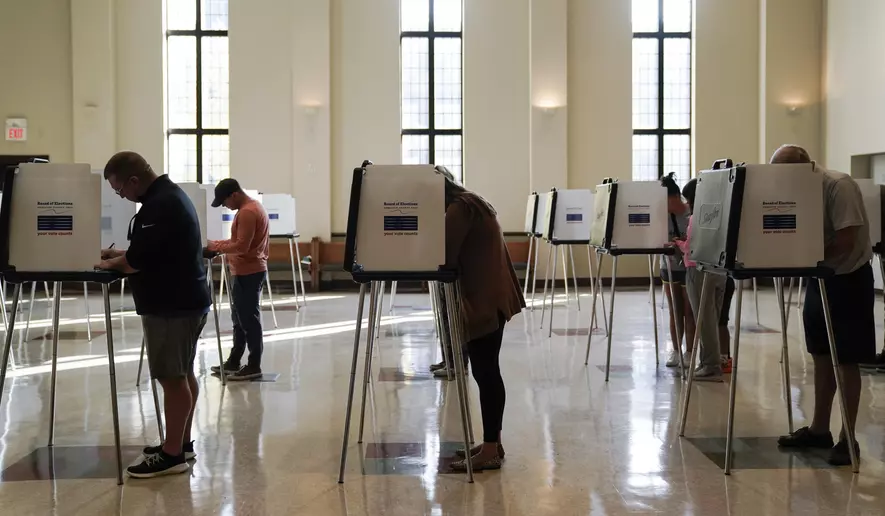
A federal judge has recently upheld several components of Ohio’s comprehensive election law passed last year, dismissing a challenge from the Elias Law Group, a Democratic firm, against stringent photo ID requirements, restrictions on drop boxes, and tightened deadlines for absentee and provisional ballots.
U.S. District Court Judge Donald Nugent, in a ruling issued on Monday, deemed Ohio’s new photo ID mandate as having a minimal burden on voters, if any, for the majority of individuals.
The lawsuit, filed by the Elias Law Group on behalf of various groups including military veterans, educators, retirees, and homeless individuals, argued that the law placed unnecessary and discriminatory obstacles on the fundamental right to vote. However, Judge Nugent rejected these claims.
The legislation was signed into law by Republican Governor Mike DeWine, despite strong opposition from several quarters, including voting rights, labor, environmental, and civil rights groups who had vehemently pushed for a veto.
Judge Nugent emphasized that the Constitution does not guarantee voters the right to a mail-in voting option or early voting. He further underscored that Ohio’s absentee ballot schedule still remains more accommodating compared to 30 other states.
Regarding the limitation of drop boxes to one per county, Nugent indicated that while the 2023 law was the state’s first to permit their use, the argument that it disadvantaged voters was misplaced. This provision addressed a prolonged conflict wherein courts previously criticized the Secretary of State for limiting drop box locations.
“Put simply, Plaintiffs did not provide evidence that the drop-box rules of HB 458 imposed any burden on Ohio voters, much less an ‘undue’ one,” he wrote.
Despite ongoing concerns from critics who view these provisions as obstacles to certain voters, others, including Derek Lyons, the president and CEO of Restoring Integrity and Trust in Elections, praised the ruling as a step toward ensuring the integrity of Ohio’s elections.
“RITE is very proud to have helped defend Ohio’s important and commonsense election law,” he said. “With Ohio courts affirming the new law, voters can have confidence Ohio’s elections are an accurate measure of their will.”
The debate surrounding voting regulations continues to be a divisive issue, sparking conversations on striking a balance between election integrity and accessibility. As these debates persist, future legal and legislative actions will likely continue shaping voting laws not only in Ohio but also across the country.









